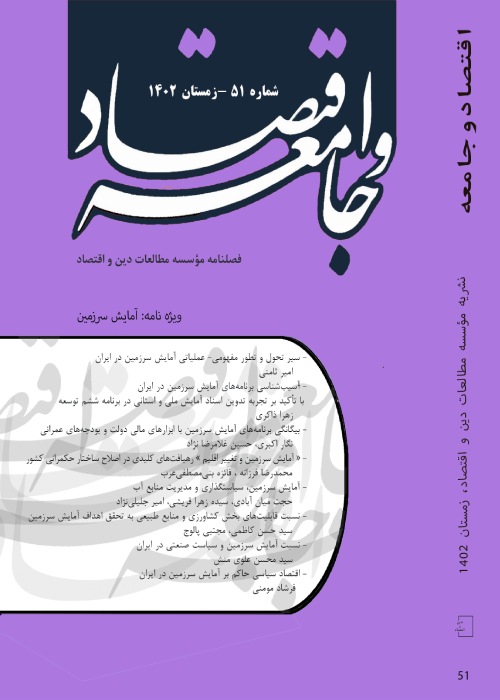Coronavirus Pandemic Political Economy: Cognitive-Institutional Approach
Pandemic diseases have been known in the world for thousands of years, and from the earliest years of social life, humans have been involved and led to fundamental changes in countries, the most recent of which is the spread of coronavirus in December 2019. Which poses a serious threat to the world, with UNDP reporting that it is the biggest challenge facing the world since World War II. The pandemic, like a wave, travels across countries and has the potential to create devastating social, economic, political and even military crises, leaving deep scars. The spread of the disease has created an atmosphere of insecurity in the world and has made people's lives very worrying. The persistence of insecurity can have irreversible consequences, and it is necessary to reflect on this and find solutions to reduce possible harm. Because among the most important studies on the roots of underdevelopment, there may not have been a single case that did not talk about the determining role of insecurity. According to North, however, the conventional economy does not fundamentally question the structure that human beings impose on themselves in order to regulate the environment and thus reduce uncertainty. Therefore, it is necessary to use more comprehensive insights in order to have a better understanding of the consequences. Given the ranking of macro-level studies relative to micro-level and development-level relative to macro-level, it is necessary to study the various consequences of experiencing the uncertainty conditions of the 2019 Coronavirus pandemic and finding ways to reduce potential harms. . The present study is library in terms of purpose, application and development, and in terms of the type of studies, and explains the situation with a cognitive-institutional approach. The findings suggest that coronavirus pandemic, as an extrinsic shock, affects the brain, heart and the entire human cognitive and vital system, causing severe damage to society and causing many disorders around the world, including social anxiety. This has raised serious concerns for citizens in all countries, even in societies where the corona has not yet spread, and has led to the adoption of unreasonable policies by policymakers in some countries. The reaction of most world leaders to the pandemic of coronavirus has been almost identical. Nearly all world leaders have identified the situation as a war situation and have taken steps to end the war; governments have rapidly changed their role, the health of citizens has become a top priority, and special rules have been set for the new situation. Of course, many developing countries, such as Iran, have not been able to adopt serious and difficult regulations due to the economic problems they face, and have given priority to continuing production and economic survival. Iran's fragile economy, in the shadow of the organized interventions of rentier and unproductive institutions, was in a critical situation even before the pandemic of Coronavirus. Continued doubledigit inflation, along with falling oil prices, continued economic sanctions and disruption of production activities or community service sectors, plunged Iran's rentier economy into a stagflation, leading to a more rapid economic collapse than ever before. River. The findings of this study show the lack of economic, social and sometimes political stability in different societies, each of which, along with the uncertainties caused by the pandemic shock of coronavirus, further increases the cause and increases the feeling of insecurity and uncertainty among the people. . In this way, societies are increasingly exposed to the dangers of anxiety and fear that have been expressed before, leading to more social harm, which indicates the need to adopt stable policies rather than violent and shocking ones. The findings of the present study show that overcoming the country's critical situation requires the creation of a set of institutions that are immediately adaptable to shocks, riots, and pervasive uncertainties that characterize any society over time. The control of violence, the increase in the rule of law and the increase in trust over time, through which the government supports organizations and ensures the implementation of agreements between them, were introduced as three key processes of progress. In other words, strengthening national institutions that promote national production and paying attention to the issue of sequences in policy-making, as fundamental solutions to the problem of current uncertainties and even creating long-term stability in the country, was proposed.
- حق عضویت دریافتی صرف حمایت از نشریات عضو و نگهداری، تکمیل و توسعه مگیران میشود.
- پرداخت حق اشتراک و دانلود مقالات اجازه بازنشر آن در سایر رسانههای چاپی و دیجیتال را به کاربر نمیدهد.


